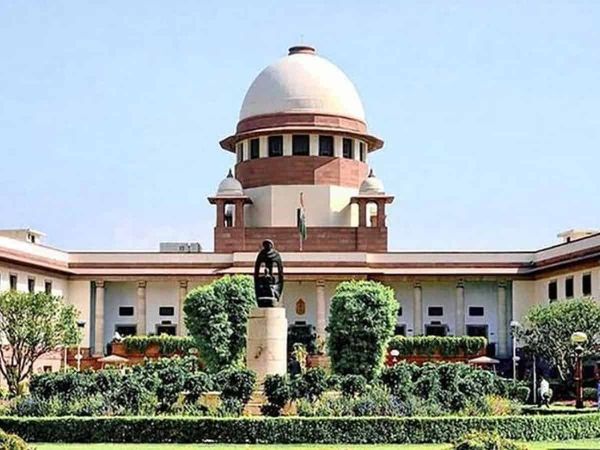
New Delhi: The Supreme Court on Monday said the Uttar Pradesh Government Servant (Discipline and Appeal) Rules, 1999 mandate recording of oral evidence in support of charges against a public servant when the inquiry proposes imposition of a major penalty.
The apex court quashed a verdict of the Lucknow bench of the Allahabad High Court which had reaffirmed an order of the disciplinary authority against a public servant.
The officer, while being posted as an assistant commissioner of commercial tax, had faced disciplinary proceedings. The disciplinary authority had in November 2014 awarded punishment of censure entry as well as stoppage of two grade increments with cumulative effect.
The officer had challenged the order imposing penalty before the State Public Services Tribunal, Lucknow, which quashed the order and directed that he shall be entitled to all consequential benefits.
Later, the disciplinary authority assailed the tribunal’s order before the high court which set it aside on July 30, 2018.
The officer then approached the apex court challenging the high court’s verdict.
A bench of Justices P S Narasimha and Sandeep Mehta noted in a verdict that there was no dispute amongst the parties that penalty imposed upon the officer was a major one as defined in the 1999 Rules.
“… we are of the firm view that the inquiry proceedings conducted against the appellant (officer) pertaining to charges punishable with major penalty, were totally vitiated and non-est in the eyes of law since no oral evidence whatsoever was recorded by the department in support of the charges,” the bench said.
It said Rule 7 (vii) of the 1999 Rules clearly stipulates that where a government servant denies the charge, the inquiry officer shall proceed to call the witness proposed in the chargesheet and record their oral evidence in the presence of the charged public servant who shall be given an opportunity to cross-examine such witness.
“Hence, recording of oral evidence in support of charges against government servant is a mandate under of sub-rule (vii) of Rule 7 of the Rules of 1999, when the inquiry being conducted proposes imposition of a major penalty,” the apex court said.
It said on a minute appraisal of the inquiry report, it was evident that other than referring to the documents pursuant to the so-called irregular transactions constituting the basis of the inquiry, the inquiry officer had failed to record the evidence of even a single witness in order to establish the charges against the officer.
The bench said the apex court in a catena of judgments has held that recording of evidence in a disciplinary proceeding proposing charges of a major punishment was mandatory.
It said the high court fell into grave error of law while interfering with the well-reasoned judgment of the tribunal which had quashed the order imposing penalty on the officer.
“Resultantly, the impugned judgment dated July 30, 2018 is hereby quashed and set aside and the order dated June 5, 2015 rendered by the Public Service Tribunal, Uttar Pradesh is restored,” the bench said, adding that the officer was entitled to all consequential benefits.